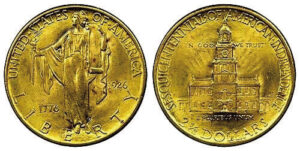Williams enjoys matching wits with turkey gobblers
By Staff
April 6, 2001
John Williams of Toomsuba, started turkey hunting at the age of 12 with his father. His love and knowledge of turkey hunting has grown enormously since that first hunt. Over the years John has tangled with many a tough "tom" and this has given him invaluable wisdom about the habits of the wild turkey. In fact, he has already harvested a couple of turkeys in Mississippi as well as a couple in Alabama during the current season. Not too many people have done that this early in the year. Being a hunter who loves to call to the birds and engage in a battle of wits, Williams doesn't give up easily. If a bird doesn't act right, he will leave him and come back another day. Now some hunters can't do that, they take it personal and may even waste a whole season on that one old hardhead bird.
On the day that John shot his first gobbler this year, he left an old gobbler when the tom quit gobbling after he flew off the roost. Williams knew the timing wasn't right on that day and went after another one. Later that morning, he heard a gobbler already gobbling on the ground. After a quick set up, he called and the turkey responded with a hearty gobble right away. That turkey was ready for Williams' seductive calling and had no fear in coming to the call. In short order, he had a nice turkey sporting a 10" beard and 1" spurs!
Although Williams is surely an expert schooled in all of the modern hunting techniques, he still uses some tricks from the old school. Some of these are very sound and enable him to take pressured birds when other hunters can't. Once the morning begins to break first light, Williams will let the gobbler sound off and signal his presence. There will likely be an owl or crow to fly by and intimidate the old monarch into gobbling. Many birds have been pressured so much by novice hunters, that only a few man-made owl or crow calls will often turn the birds off. Now if Williams doesn't hear that gobbler sound off, he will owl or call just enough to get him to gobble once, to reveal his location. Once that happens he will set up and start his "game" of matching wits. This game is much like a chess game, only the gobbler is playing for his very life! One wrong move by either party and the game is over, maybe for the day or forever if the turkey loses. However, more often than not the gobblers win.
Williams prefers to set up 200-300 yards from the turkey; just close enough for the turkey to hear, but not close enough to spook the old tom. Normally, he will only call to the turkey once it hits the ground. If he needs to call while the gobbler is still in the tree, he will only use light tree calls to let the bird know where he is.
Once the bird is on the ground he calls sparingly, just enough to keep the gobbler interested. If needed, he will cut and cackle when competing with a real hen. For the most part however, he lets the gobbler dictate how he's going to call on that particular day. If Williams tangles with a bird that he has a hard time with, he will try to work him around mid-morning or afternoon, after the hens have gone to their nests to lay.
From mid-morning on into the afternoon, the old gobblers will get lonesome and become more susceptible to the seductive calling of a hunter. Although Williams has taken his share of the birds while hunting alone, he also enjoys taking friends and other hunters with him on his hunts. In fact, he has already called up a few nice birds for friends. They were taken with the help of his expert calling and woodsmanship. As long as there is an old tom out there gobbling, Williams has got a chance to kill him. You can be sure he'll be out there matching wits with another gobbler soon. What more could a hunter ask?








